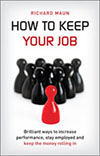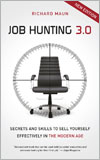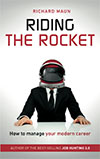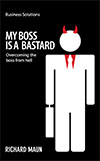better business blog
Tips and stories to add value to you and your organisation

Why Does Redundancy Hurt?
A friend wrote to me recently and asked how you can make sense of the feelings associated with redundancy and here’s an extract from my reply to him. I’ve changed the details to keep his identity private:
Hi there Peter and I’m with you on the issue of nagging doubts. It’s because of the sudden shift in strokes and the feeling of ‘I did something wrong and they won’t tell me.’
A stroke is a term from Transactional Analysis and means a unit of recognition. Conditional strokes relate to things we’ve done or said, whereas unconditional strokes are about ‘us’ …eg our looks, or being loved. They’re much more personal.
Redundancy can be a huge negative unconditional stroke, eg ‘I don’t love you and I don’t want you’ …these are the worst kind. If it was about competency we could rationalise it. When it’s just ‘go away’ we start to wonder why they chose us and not someone else who we judge to be a poorer worker? It feels like we’ve been told a lie …they said it wasn’t about us, but if that’s the case why did they let us go and choose to keep someone else? It doesn’t add up and the thought nags at us.
In my case it’s always been about personality …ie get rid of Richard he’s a pain. Nothing wrong with my work rate. I’ve realised that I’m poor in just one organisation because I’m smarter than many people and they hate that …so they get rid. I’ve always gone on to bigger things and if I’d never been made redundant I’d still be a factory planner type and truly hating my life. In your case here Peter, the organisation had no choice but to lose good people. The scale of redundancies and the financial changes meant that they had to restructure. This means that it really isn’t about you. You’re a top chap. It’s still a bitch to get the negative stroke and you have to count your skills and revisit the positive strokes relating to the good work that you did and remind yourself that you really are a skillful, hard working, friendly person.
Leaving an organisation, when it’s not your choice, is often miserable at first. The pain of separation takes time to fade …that’s natural. You also have an opportunity to turn this to your advantage: What would you like to do now? A masters degree? Set up your own business? Retrain? Write a book? You have a choice – finish grieving, have a holiday to give yourself a break and then decide: What’s the opportunity here for me?
The key is to remember that you retain all of your skills and that you remain a decent person. It’s better to create opportunities and be resilient I think, than invest any more energy into grumbling and giving yourself negative strokes.
You’re one of the good guys. You have talent!
Make a choice: What’s the opportunity here?
Good wishes
Rich
e-publishing
Click icon for details


recent posts
browse archive
books
Click cover to view details on Amazon

How to Keep Your Job
Brilliant ways to increase performance, stay employed and keep the money rolling in
Published 2011 Marshall Cavendish
208pp

Job Hunting 3.0
Secrets and skills to sell yourself effectively in the Modern Age
Published 2010 Marshall Cavendish
260pp

 RSS
RSS


